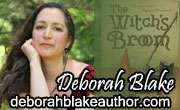How do you join yourself to a people?
In the dream, I am leaving home, going to fight in Ukraine. In dedication, I carve a piece of flesh from my right calf, about the length and volume of a finger.
I vow to Tue, old Sky Father, lord of battles, to make this people my people, and this fight my fight.
I take the all-seeing Sun, guarantor of agreements, to be my witness.
***
In waking life, of course, I do nothing of the sort. Instead, from the safety of another continent—from the middle of the continent, no less—I sit and write, torn in spirit, shaken by a war in which I have no part.
***
In the Old North, war was a religious affair.
Before a campaign, a departing army would first gather for the hosting-sacrifice. Sprinkled—literally, blessed—with the blood of the sacrificial victim, they would bind themselves with a hold-oath to fight as one, laying aside all other feuds and grievances for the duration.
***
I once lost a friend to victimhood.
He had embraced victimhood as an identity. There were no oppressed in whom he could not see himself. “I wonder which oppressed group Tom has decided to identify with this week,” a mutual friend once commented archly.
In the end, weary of being cast as eternal oppressor to his eternal victim, I walked away from the friendship.
In sorrow, I walked away.
***


















